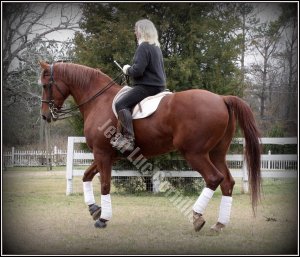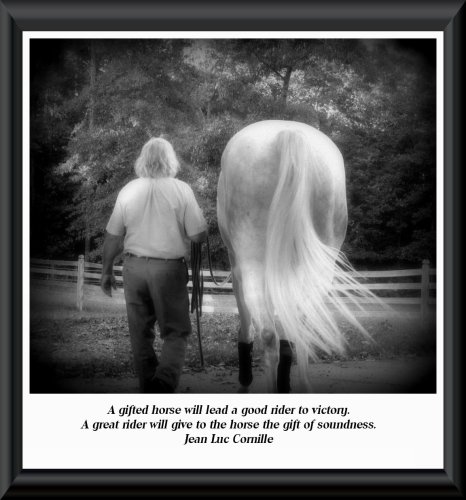Are you happy with your horse riding experience?
The team at Science of Motion and Jean Luc Cornille would like to ask
“Are you happy with your horse riding experience?”

Dressage Horse Trainer
Equine Biomechanics
The science of riding or schooling horses is equal parts training, experience, art and most of all up to date studies. Today’s advances in equine science move forward at speeds unequaled in past or even recent history. Equestrian trainers and instructors, by the very nature of their job descriptions, must provide up to date information to their clients. That USDF medal winner (from two decades ago) is failing her students if all she brings to the table is the training that won her that medal. What was appropriate even a year ago is no longer relevant.
Students, both horse and human, that never advance due to perceived lameness or mechanical defect of their horse(s), as well as the inability to mimic those methods used by their trainers need to ask why this is so. First of themselves and then of the trainer the question needs to be asked – what are we missing?
If the trainer points to any of the following; chiropractic, massage, farrier, joint injections as well as a host of gizmos and gadgets, and these augmented therapies and devices consistently fail to improve the athletic performance, then the true problem lies with the trainer. All unsuccessful training methods come about from inadequate knowledge.
When you ask a question of your trainer you should get an answer that makes sense. If you ask the same question over and over again and the answer is never clear, nor does it improve the quality of your schooling experience, or it is simply a regurgitation of past information, then you must turn to yourself. As your horse’s main advocate it is up to you to seek out the information that will best assist your schooling.
We here at Science of Motion provide to both trainers and riders, up to date, highly advanced, scientific methodology for those that wish to improve their riding and training without sacrificing the health of the horse. Sound scientific schooling approaches improve and build upon the physical and mental health of each individual horse. It takes little more than an educated mind and body to advance a horse’s ability but such education must keep up with the times. Much is being studied and new information regarding the intricacies of equine biomechanics is revealed everyday. Science of Motion is your leading source of interpretation of all such discoveries.
Be secure in your equestrian training pursuits. Trainers should offer nothing less to their students than a superior level of education and students should accept nothing less from their trainers. We all owe this and nothing less to the horse – the animal without which humankind would still be struggling to evolve.




 twitter
twitter facebook
facebook digg
digg google
google stumbleupon
stumbleupon myspace
myspace fark
fark feedmelinks
feedmelinks linkedin
linkedin blogger
blogger